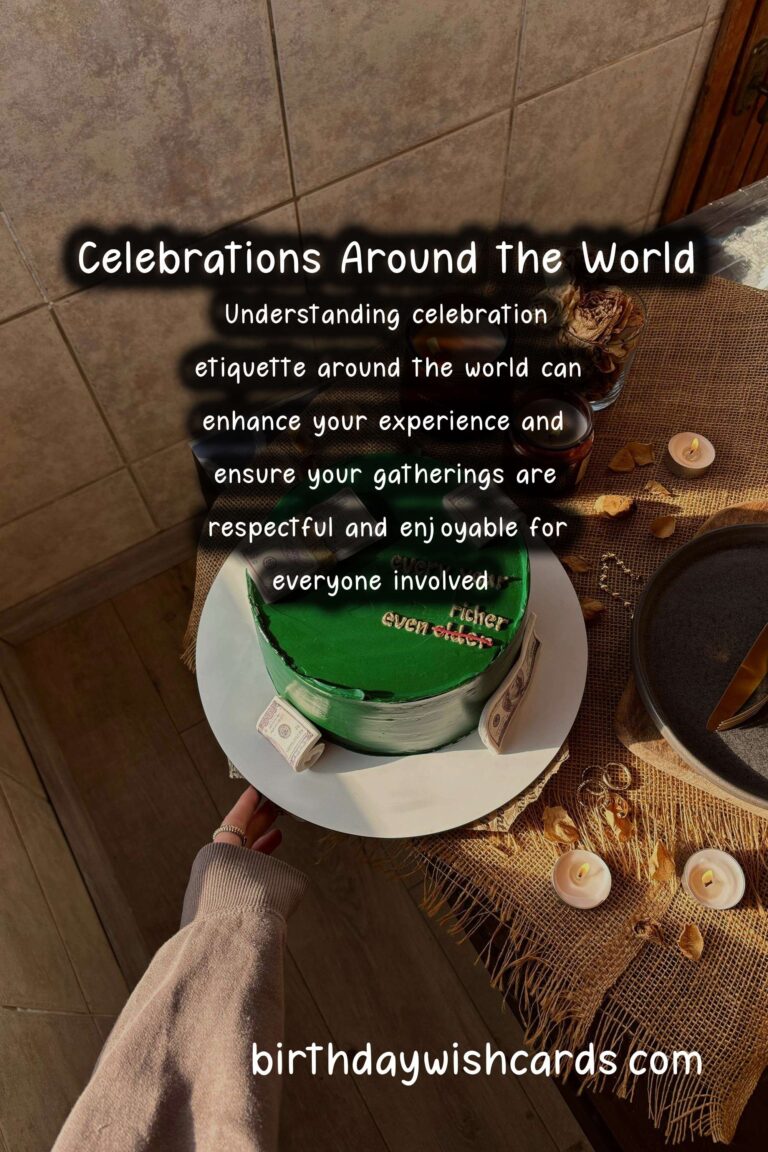
Celebrations are a fundamental part of human culture, serving as moments to come together and make memories. However, the etiquette surrounding these celebrations can vary significantly from one culture to another. Understanding celebration etiquette around the world can enhance your experience and ensure your gatherings are respectful and enjoyable for everyone involved.
Understanding Celebration Etiquette
Celebration etiquette refers to the unspoken rules and traditions that govern how individuals participate in and host celebrations. These rules often reflect the values, beliefs, and customs of a particular culture. This article will explore various celebration norms from around the globe and offer insights into how to write about them effectively.
The Importance of Celebration Etiquette
Celebration etiquette is essential as it:
-
Fosters Respect: Understanding and adhering to cultural norms demonstrates respect for others’ traditions.
-
Enhances Communication: Knowing what to expect can improve interactions and minimize misunderstandings.
-
Creates Lasting Memories: Following proper etiquette can make celebrations more enjoyable and memorable.
Celebration Etiquette in Different Cultures
1. Japan
In Japan, celebrations often involve intricate customs, especially during festivals like Hanami (cherry blossom viewing). Guests are expected to bring a small gift, known as omiyage, for the host. When participating in a toast, it’s customary to wait for the person of highest rank to begin.
2. Mexico
Mexican celebrations, such as birthdays and weddings, are lively events. It’s important to arrive fashionably late but still within an acceptable timeframe. Guests should bring gifts, and it’s polite to offer to help with preparations, such as cooking or decorating.
3. India
In India, celebrations can range from Diwali to weddings. It’s customary to remove your shoes before entering someone’s home. Offering sweets or food to guests is a sign of hospitality, and guests should be open to trying everything that is served.
4. Italy
In Italy, food plays a significant role in celebrations. When dining, it’s polite to wait for the host to start the meal. Bringing a small gift, such as wine or dessert, is appreciated, but avoid giving flowers, as they are reserved for a specific occasion.
How to Write About Celebration Etiquette
Writing about celebration etiquette can be an enriching experience for both the writer and the reader. Here are some tips to consider:
1. Research Thoroughly
Gather information from credible sources about cultural practices, taboos, and the significance of various celebrations. This will not only enhance your credibility but also provide your readers with accurate information.
2. Use a Respectful Tone
When discussing different cultures, it’s vital to use a respectful and neutral tone. Avoid making generalizations or negative comparisons.
3. Include Personal Experiences
If possible, share personal stories or anecdotes related to your experiences with different celebrations. This makes your writing more relatable and engaging.
4. Highlight Differences and Similarities
Showcase the unique aspects of various celebration etiquettes, but also highlight common themes, such as family unity or community connections, which bring people together.
Examples of Cultural Celebrations
1. Chinese New Year
The Chinese New Year is marked with dragon dances, fireworks, and family gatherings. It’s essential to give red envelopes filled with money as a gesture of goodwill.
2. Thanksgiving (USA)
Thanksgiving emphasizes gratitude and family. Traditionally, guests bring a dish to share, and it’s polite to express thanks to the host. Black Friday shopping has also become a cultural phenomenon following the holiday.
3. Mardi Gras (USA)
Mardi Gras in New Orleans is known for its vibrant parades and masquerade balls. While it’s a time for fun, respecting street etiquette, such as not interrupting floats or performers, is essential.
Tips for Hosting Celebrations Respectfully
1. Know Your Guests
Understanding the cultural background of your guests can guide your planning process. Tailor your celebration to accommodate various customs and dietary restrictions.
2. Set the Right Atmosphere
Incorporate cultural symbols, decorations, and music to create an inviting environment. This enhances the cultural experience for everyone involved.
3. Offer Clear Invitations
Provide clear information about the event, including attire, gifts, and any special customs to observe. This helps guests feel prepared and comfortable.
Conclusion
Writing about celebration etiquette around the world enriches our understanding and appreciation of diverse cultures. By adhering to proper etiquette, we contribute to memorable experiences that unite us in our shared humanity. So next time you celebrate, remember the customs that shape these joyous occasions!
Celebrations are a fundamental part of human culture, serving as moments to come together and make memories. Understanding celebration etiquette around the world can enhance your experience and ensure your gatherings are respectful and enjoyable for everyone involved. 
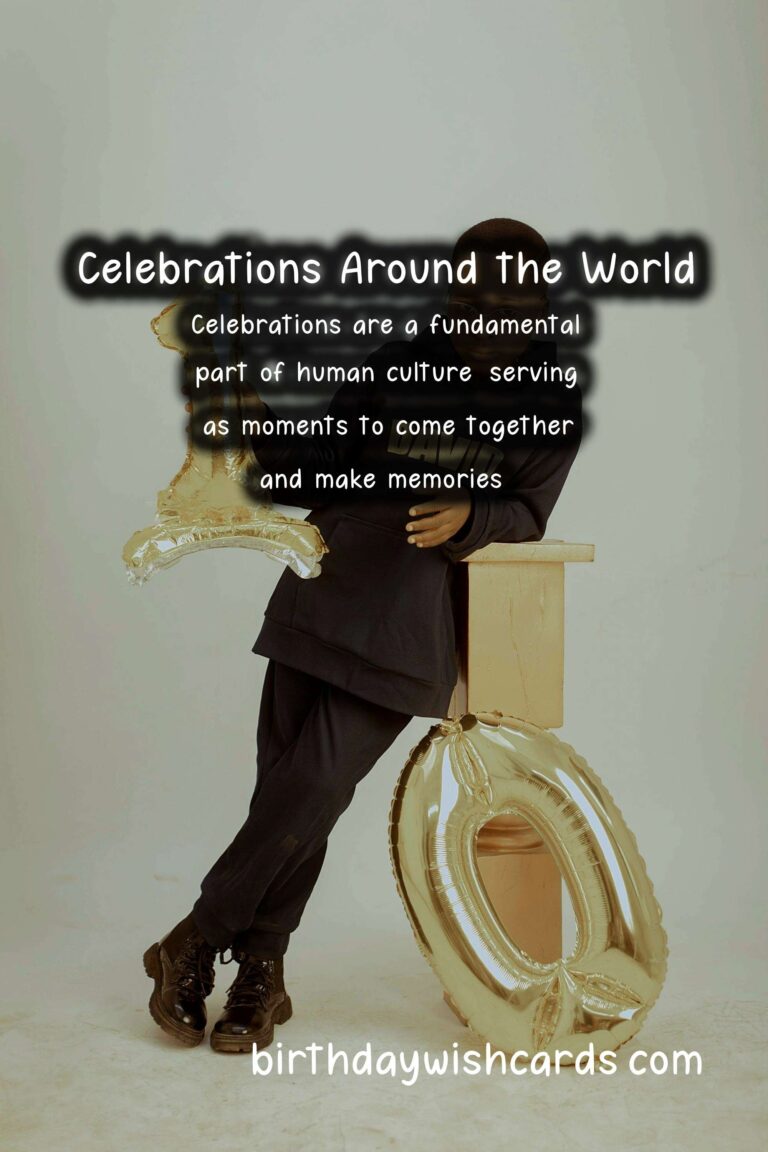

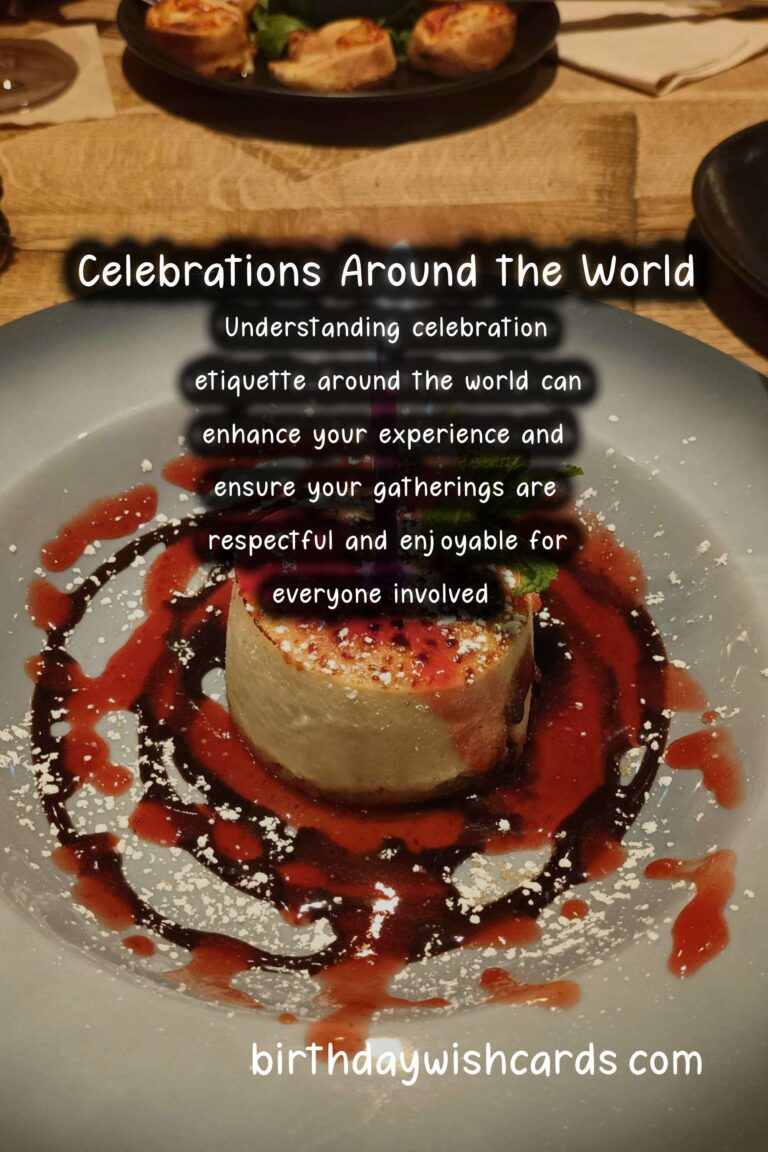

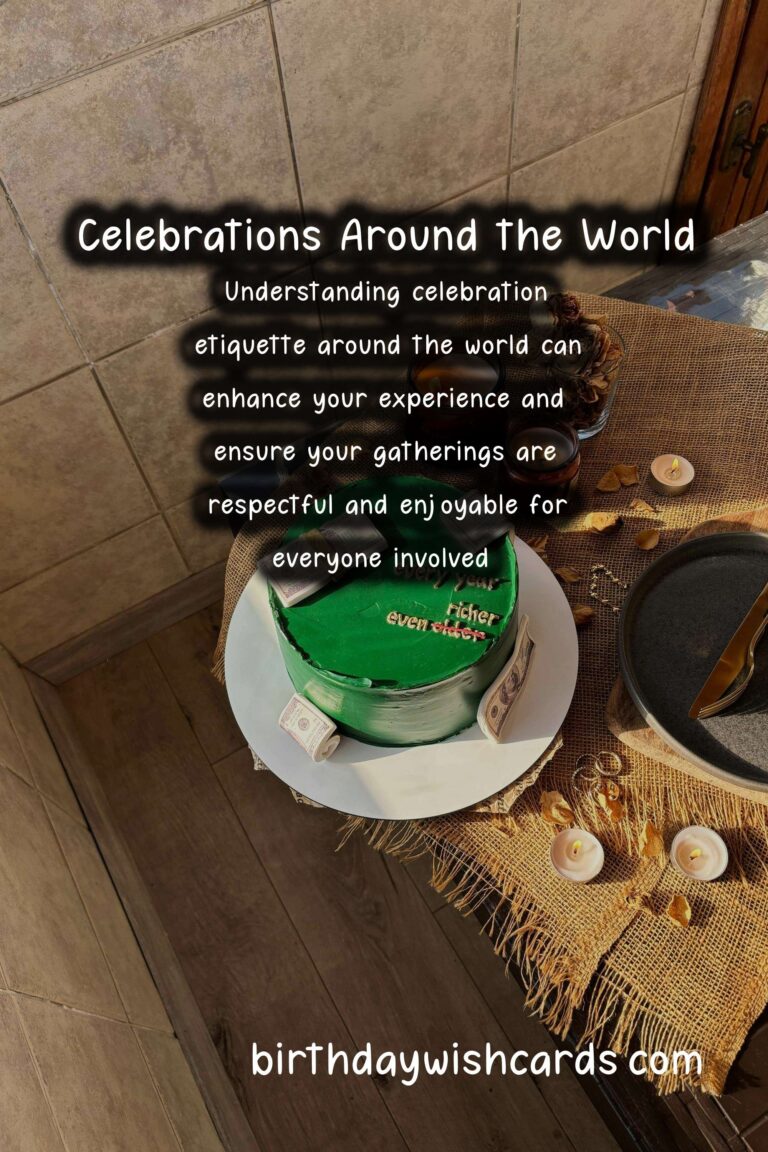
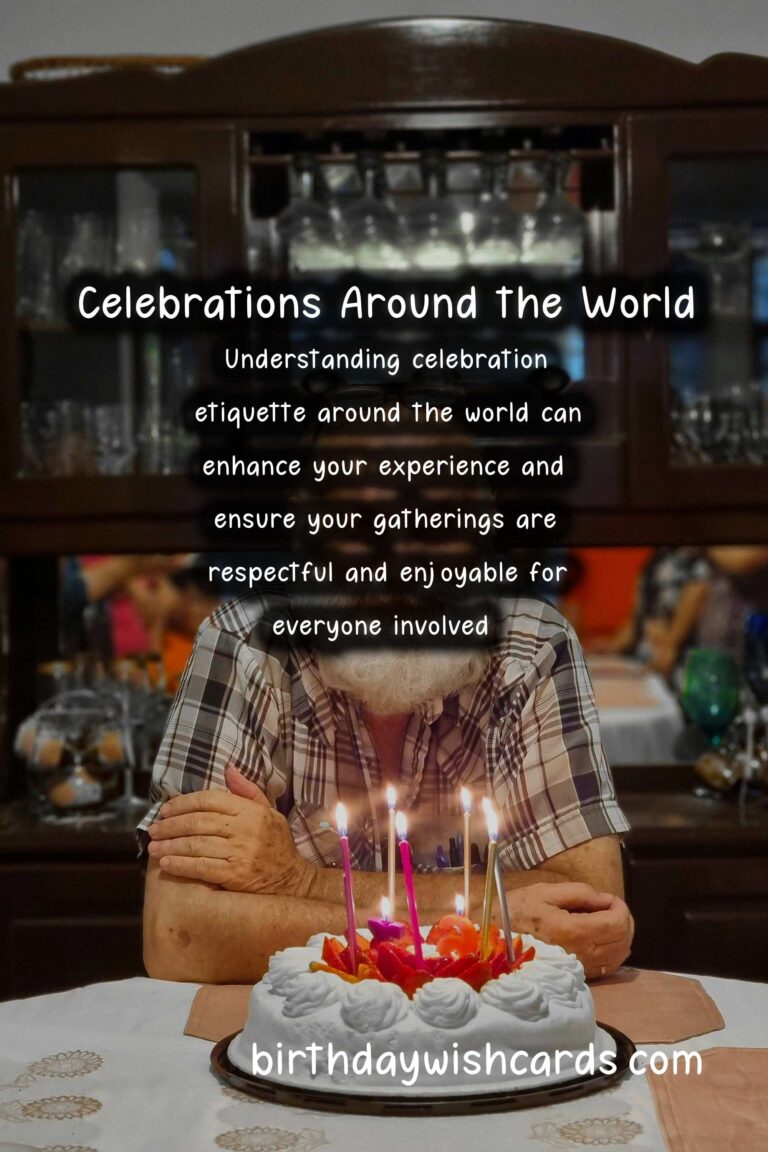
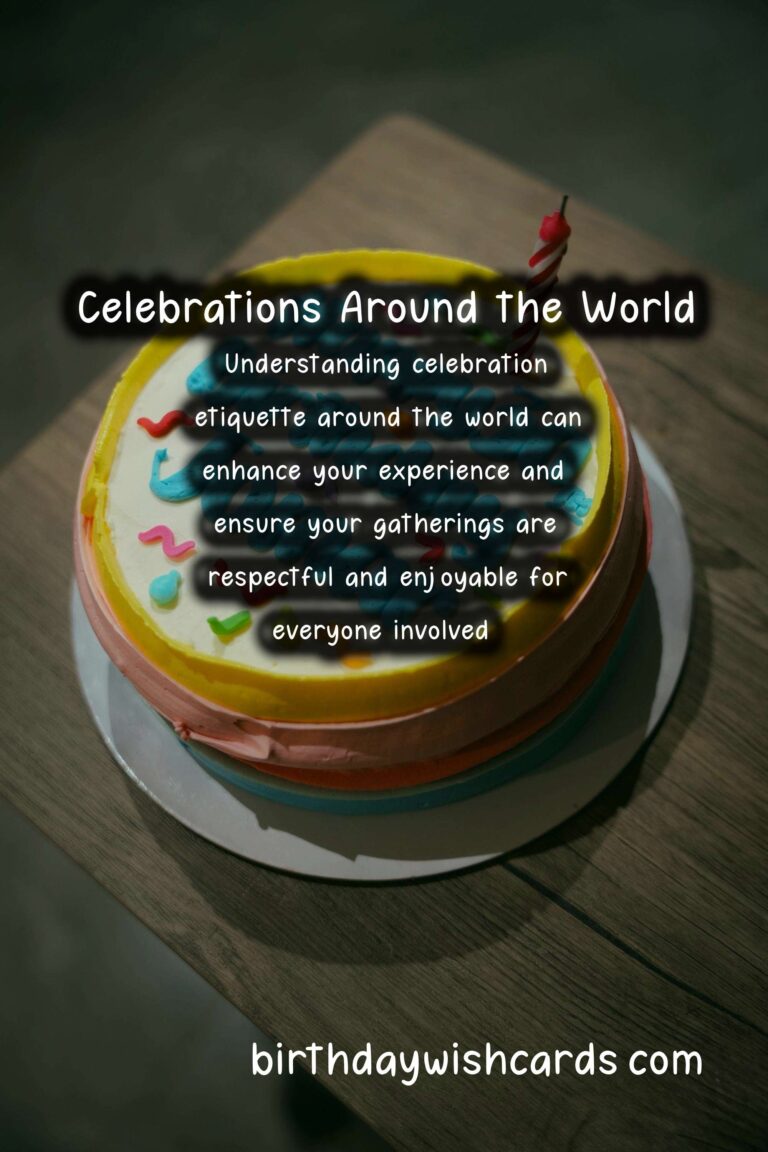


#celebration #etiquette #culturalcelebration #memories #globaltraditions




